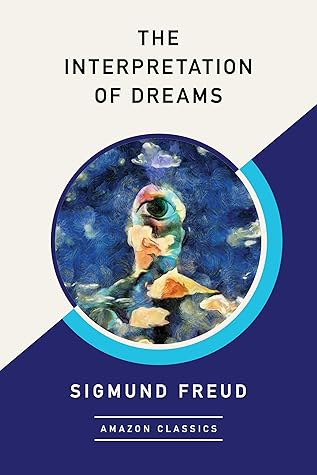More on this book
Community
Kindle Notes & Highlights
They distinguished between true and valuable dreams, sent to the dreamer to warn him or to foretell the future, and vain, fraudulent, and empty dreams, the object of which was to misguide or lead him to destruction.
One of the sources from which the dream draws material for reproduction—material which in part is not recalled or employed in waking thought—is to be found in childhood.
“nothing which we have once psychically possessed is ever entirely lost” (Scholz); or as Delbœuf puts it, “any impression, even the most insignificant, leaves an unalterable trace, indefinitely susceptible to resurface,”
Identification is most often used in hysteria to express sexual community. An hysterical woman identifies herself most readily—although not exclusively—with persons with whom she has had sexual relations, or who have sexual intercourse with the same persons as herself. Language takes such a conception into consideration: two lovers are “one.” In the hysterical phantasy, as well as in the dream, it is sufficient for the identification if one thinks of sexual relations, whether or not they become real. The patient, then, only follows the rules of the hysterical thought processes when she gives
...more
Can you possibly suppose this is a wish of mine to be arrested?” “Of course not,” I must admit. “Do you happen to know upon what charge you were arrested?” “Yes; I believe for infanticide.” “Infanticide? But you know that only a mother can commit this crime upon her newly born child?” “That is true.”38 “And under what circumstances did you dream; what happened on the evening before?” “I would rather not tell you that; it is a delicate matter.” “But I must have it, otherwise we must forgo the interpretation of the dream.” “Well, then, I will tell you. I spent the night, not at home, but at the
...more
In the sexual make-up of many people there is a masochistic component, which has arisen through the conversion of the aggressive, sadistic component into its opposite. Such people are called “ideal” masochists, if they seek pleasure not in the bodily pain which may be inflicted upon them, but in humiliation and in chastisement of the soul. It is obvious that such persons can have counter wish dreams and disagreeable dreams, which, however, for them are nothing but wish-fulfilments, affording satisfaction for their masochistic inclinations.
The dream unites two occasions upon which, as a young boy, the dreamer had had opportunity to see the genitals of little girls, in throwing one down, and while another was urinating; and, as is shown by another association, he had kept in memory a punishment or threat of his father’s, called forth by the sexual curiosity which the boy manifested on these occasions.
Right and left, according to him, are to be conceived in the dream in an ethical sense. “The right way always signifies the road to righteousness, the left the one to crime. Thus the left may signify homosexuality, incest, and perversion, while the right signifies marriage, relations with a prostitute, etc. The meaning is always determined by the individual moral view-point of the dreamer.”
She started a butterfly collection, and asked her for arsenic with which to kill the butterflies. Once it happened that a moth flew about the room for a long time with a needle through its body; on another occasion she found that some moths which had been kept for metamorphosis had died of starvation. The same child while still at a tender age was in the habit of pulling out the wings of beetles and butterflies; now she would shrink in horror from these cruel actions, for she has grown very kind.
The coachman does it At the master’s behest; Everyone has it, In the grave does it rest. (Ancestry.) It was confusing to find half of the second riddle identical with the first. The coachman does it At the master’s behest; Not everyone has it, In the cradle does it rest. (Offspring.)
And how about the value of the dream for a knowledge of the future? That, of course, we cannot consider.185 One feels inclined to substitute: “for a knowledge of the past.” For the dream originates from the past in every sense. To be sure the ancient belief that the dream reveals the future is not entirely devoid of truth. By representing to us a wish as fulfilled the dream certainly leads us into the future; but this future, taken by the dreamer as present, has been formed into the likeness of that past by the indestructible wish.


